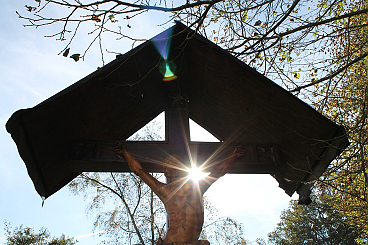
Foto: Pixabay
. When he, a carpenter’s son, began his public life, he had nowhere to stay, nowhere to lay his head, nothing to eat. His actions don’t touch upon human suffering and emptiness or from the outside; he personally enters into them, carries our burdens and bears them all the way to abandonment and death. He doesn’t destroy his enemies with a powerful lightning-bolt from the sky; he lets himself be scourged and taunted— and he forgives those who hurt him. He doesn’t turn the stones into bread to satisfy his hunger, but raises in us a hunger for the Word of God, a hunger for life, justice, and truth much greater than those things which fill us up with a momentary sense of wellbeing. Whenever he encountered the small, the poor and suffering, Jesus never passed on by because he had more important things to deal with than helping them. The child, the sick, the sinner, the grieving mother—they upset his plans and programs. They touched his heart. Jesus doesn’t have hidden interests, he doesn’t harbour something mysterious behind the scenes . . . he is totally forthright and transparent. Whoever sees him, sees the Father in total transparency. Before the sin of the world, before our misery, Jesus never says: “Ah, look at that!” He takes it all on himself and, in this way, establishes peace in his own blood. Jesus doesn’t run away from contradictions, but bears them to the very end—he, the first in the infinite human chain of persecuted and disinherited human beings. That’s Jesus, and people who follow him feel an immediate freedom, a joy and a depth in their own humanity that they find nowhere else and have never found before.
(From a homily on November 1, 1979) Klaus Hemmerle – La luce dentro le cose – Città Nuova 1998 pp. 49-50


0 Comments